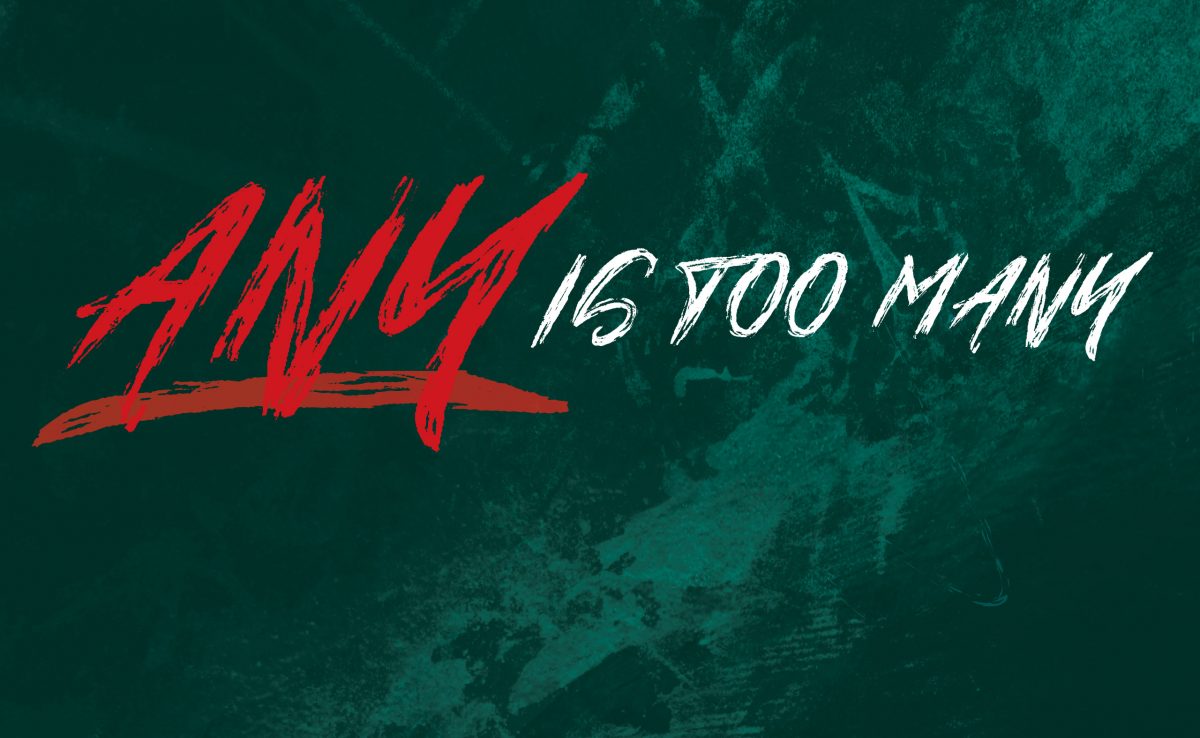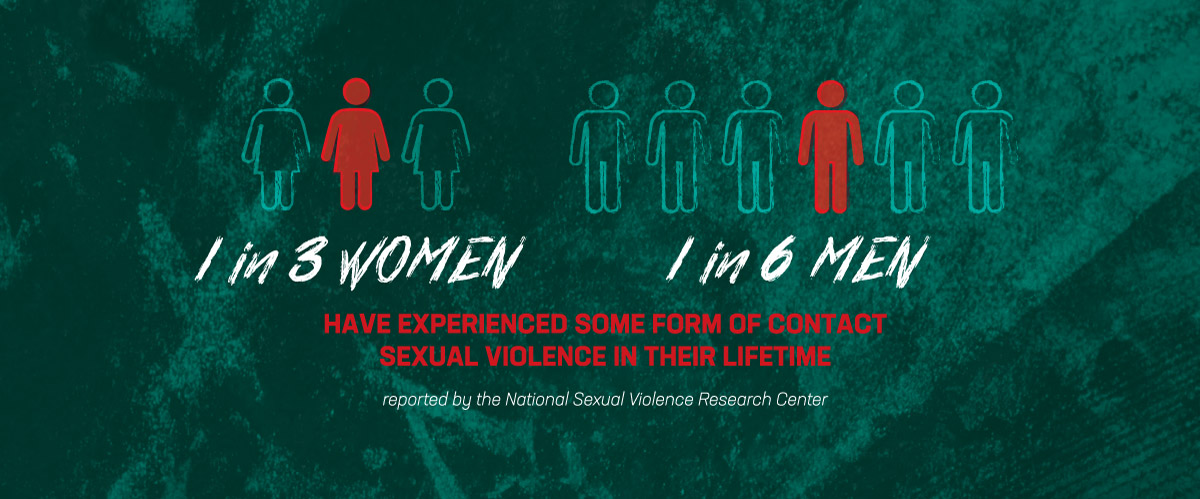Any is too Many
Hope doesn’t wait for national Sexual Assault Awareness Month in April to build awareness of the issue.
Hope’s prevention programming instead begins with resident assistant training and New Student Orientation each August, continuing with multiple large-scale and smaller events across the fall and spring semesters.
The national statistics show why. As reported by the National Sexual Violence Research Center, one in three women and one in six men have experienced some form of contact sexual violence in their lifetime. Among college and university students, the NSVRC notes, 20-25% of women and 15% of men are victims of forced sex, and nearly two thirds experience sexual harassment (the center also estimates that more than 90 percent of sexual-assault victims on college campuses don’t report the assault).
This year’s presentations were headlined by a two-part series in January co-sponsored by Hope Athletics, the college’s Title IX office and Student Development. The sequence began on Jan. 13 with a showing of the documentary At the Heart of Gold: Inside the USA Gymnastics Scandal in the Concert Hall of the Jack H. Miller Center for Musical Arts. The film explores the history and emotional impact of the sexual abuse experienced across decades by hundreds of young female gymnasts, including Olympians and Olympic hopefuls, and of the choices by others and institutional priorities that allowed it to happen. The evening, which included a live Q-and-A immediately following the screening with one of the survivors, Melody Posthuma, was presented in conjunction with the Courage First program of The Foundation for Global Sports Development.
A follow-up session two weeks later with a student-and-staff panel in the Jim and Martie Bultman Student Center provided an opportunity to unpack the intense experience in a smaller setting and consider how Hope, and athletes and athletics in particular, can do better than the examples shown in the film at creating a safe environment, not least of all with regard to students’ relationships with one another.
“We feel like we’re big culture changers and shifters on campus, and it really starts at the team level,” said panelist Lindsey Odell ’01 Engelsman, assistant athletic director at Hope. “What was sad for me was how many administrators or upper levels of organizations failed to tell somebody.”
“To see that movie as a student athlete and as a young woman was very eye-opening, and makes me feel hurt for the women affected,” said fellow panelist Hannah Kenny, a senior on the cross country and track teams. “I’m grateful that we’re having a conversation about things like sexual assault education.”
Men’s lacrosse coach Mike Schanhals ’92, as one example, has been encouraging his players to be leaders in prevention for several years, guided by the principles of It’s On Us, the national sexual-assault awareness initiative established in 2014.
“They need to be able to be trained to manage those unpredictable situations,” Schanhals said. “They need to be responsible in a way that they haven’t thought about before. We need to do more of it and not just assume that they’re nice kids and will figure it out.”
“We need to be aware. We need to be able to do something to intervene,” he said. “We need to be really clear that we need to take care of one another. We need to listen, to pay attention. Over and over in that film, people had the opportunity to but didn’t.”
It’s On Us somewhat mirrors a longer-running campuswide program original to Hope: STEP, for Students Teaching and Empowering Peers, established by students in 2011. Reflecting research that shows that undergraduates have tremendous influence on one another, trained STEP Educators inform other students about forms of interpersonal violence, empower those impacted by interpersonal violence to seek resources and support, and encourage members of the campus community to be active bystanders.
“It’s not just that they’re passionate about it. They’ve gone a step further to be educated,” said senior Sophia Vander Kooy, who is one of this year’s STEP leaders, in addition to being one of the panelists and a member of the cross country and track teams. “For us, the heart of STEP lies in the training and starting conversations that result in ripples throughout campus.”
Editor’s Note: If you or someone you know has experienced sexual assault, know that you are not alone. Campus support is available through Hope’s Title IX Office (hope.edu/offices/title-ix), and the National Sexual Assault Telephone Hotline can be called at 1-800-656-HOPE (4673).


